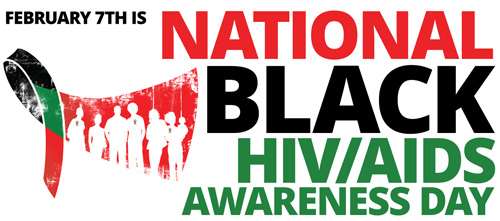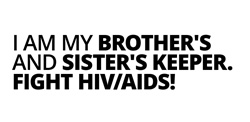
In 2011, African Americans accounted for 47% of all new HIV infections in the country, though they represent a mere 12% of the population. While 70% of these infections are among men, the U.S. Centers for Disease Control and Prevention (CDC) estimates that HIV prevalence among black women is 20 times greater than among white women and five times the rate for Latino women.
It is against this backdrop that National Black HIV/AIDS Awareness Day (NBHAAD) will commemorate its 15th year on February 7 with the theme, “I Am My Brother’s and Sister’s Keeper. Fight HIV/AIDS!” Started in 1999 as an HIV testing and treatment community mobilization initiative for African Americans, NBHAAD has four calls to action: Get Educated, Get Tested, Get Involved, and Get Treated.
 Getting Educated. The severe HIV burden of African Americans in the U.S. underscores the importance of NBHAAD’s mission to raise awareness and educate the black community on the basics of HIV transmission, prevention, and treatment.
Getting Educated. The severe HIV burden of African Americans in the U.S. underscores the importance of NBHAAD’s mission to raise awareness and educate the black community on the basics of HIV transmission, prevention, and treatment.
Getting Tested. Roughly one in five HIV infections among African Americans is undiagnosed. Knowing one’s status (and that of one’s partners) allows those who are sexually active and/or at high risk of contracting HIV to take steps to protect their health and the health of others. Testing is an essential component of all HIV prevention strategies and NBHAAD organizers hope that February 7 will serve as an annual testing day for black Americans. The locations of HIV testing sites can be found here.
Getting Involved. Getting the black community engaged in HIV/AIDS awareness events is one of the chief aims of NBHAAD. This year’s spokespeople include community activist Rev. Al Sharpton, Congresswoman Barbara Lee, former Miss America Caressa Cameron, and award-winning actress Sheryl Lee Ralph, among others.
Getting Treated. While there is currently no cure for HIV/AIDS, improved treatment options allow people with HIV to live longer, healthier lives. Connecting HIV-positive African Americans to treatment is critically important, and implementation of the Affordable Care Act promises to expand access to healthcare for many Americans.
“National Black HIV/AIDS Awareness Day is a time to reflect on both our short- and long-term goals,” writes Kali Lindsey, amfAR’s deputy director of public policy, in an op-ed timed to coincide with NBHAAD. “In 2014, an intensified focus is needed to connect evidence-based policy and funding to programs that reduce HIV transmission, curtail late diagnosis, and effectively bring expanded healthcare access to all key populations throughout the country.”
For more information about National Black HIV/AIDS Awareness Day visit: http://nationalblackaidsday.org/
See also: